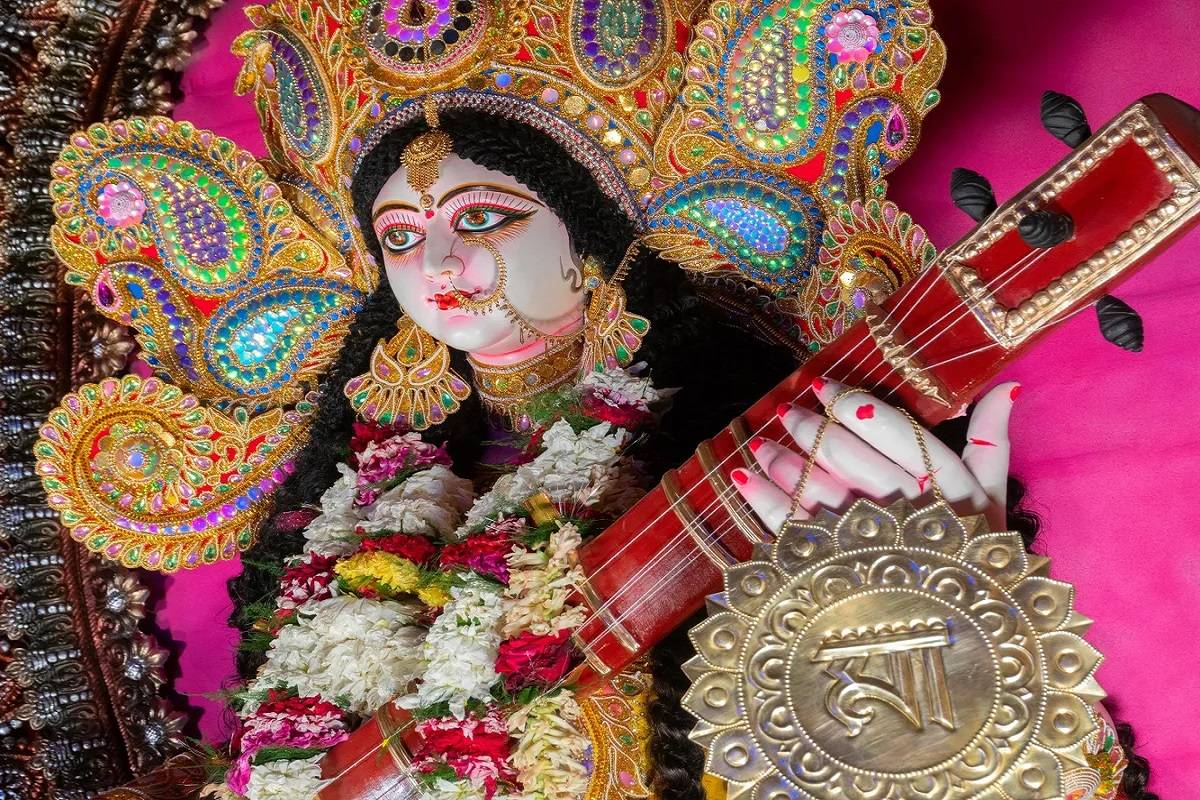
Different festivals that Indians celebrate throughout the year are all about peace and togetherness. One of the most important festivals for Hindus in India is Basant Panchami. On the day of Basant Panchami, according to the Hindu calendar, Goddess Saraswati is worshipped.
On this day, Kamadeva, the God of Love, is also worshipped in some areas of India. It's interesting to note that the day also marks the beginning of spring. In addition, Basant Panchami signifies the start of the 40-day countdown to Holika and Holi.
Here are some things you must know about this auspicious festival.
Vasant Panchami: The beginning of spring!
Vasant Panchami is a festival that falls on the fifth day of the Hindu lunar month of Magha (January–February in the Western calendar), signifying the beginning of the end of winter and the arrival of spring. Vasant means "spring" and Panchami means "fifth."
Spring, which is referred to as the "king of all seasons" in India, not only provides great relief from the bitter cold of winter, but it is also the season when the mustard crop blooms with yellow flowers, which stand for wisdom, light, energy, wealth, and peace. Thus, it is seen as fortunate to start new activities like getting married, purchasing a home, or starting a job.
Goddess Saraswati is Worshipped
Vasant Panchami marks the day when the renowned Sanskrit poet Kalidasa, who is said to have lived in the fourth or fifth century CE, is believed to have received the blessing of the goddess Saraswati (the goddess of knowledge, wisdom, learning, and art).
A princess with extraordinary intelligence by the name of Vidyottama is said to have defeated many eminent scholars in debate. When it came time for her to be married, she vowed she would only do so with someone smarter than she was. However, a group of pandits thought she was unduly arrogant and decided they would give her a lesson by deceiving her into marrying a fool. One day they came across Kalidasa, who was cutting the same branch off a tree that he was sitting on.
The men presented him to the princess as a highly educated sage and persuaded her to marry him after deciding that he was the fool they were searching for. She consented to a quick marriage with Kalidasa after being deceived by the pandits. Kalidasa was expelled from the palace when Vidyottama eventually realized he wasn't the knowledgeable guy she believed he was. Kalidasa was about to commit suicide because he felt defeated and embarrassed, but the Goddess Saraswati intervened and told him to take a dip in the nearby river instead. He submerged into the sea like she had told him to. He was no longer the old Kalidasa when he emerged. He possessed extraordinary intelligence and wisdom, and he eventually became well-known as a poet.
Although there are several versions of this tale with details that don't always match, Kalidasa's transformation is constant. On Vasant Panchami, devotees pray to Saraswati in the hope that they would one day acquire her wisdom and intelligence.
The God of Love is also worshipped on Vasant Panchami
The story of the time the god of love, Kamadeva, attempted to wake Shiva from his meditation is another Vasant Panchami tale.
The Matsya Purana, the Shaiva Purana, and several other retellings all give varied specifics of how Parvati, a manifestation of the feminine Divine, fell profoundly in love with Shiva and desired to marry him. But once his wife Sati passed away, Shiva entered a profound state of meditation, and nothing Parvati did could wake him. Eventually, it was requested of Kamadeva, the god of love, awakened Shiva from his sleep and rouses his desire for Parvati, who was Sati in a previous life.
Kamadeva agreed to help and set up an inviting springtime environment before hitting Shiva with five desire-inducing arrows. Shiva opened his third eye in rage at being interrupted during his meditation, and he instantly set on burning Kamadeva. Rati, Kamadeva's wife, approached Shiva after learning what had happened and pleaded with him to revive her husband. Shiva revived Kamadeva out of compassion, but he specified that only Rati would be allowed to see him in his physical form. He would be a spirit of love and desire to everyone else.
As a result, Vasant Panchami is remembered as the time of year when Kamadeva stirs the passions of both the earth and its inhabitants as the lands to come alive with fresh flowers, as well as the day when Kamadeva was assigned with sparking Shiva's desire for Parvati.
Surya is also honored on this day
On Vasant Panchami, many people also commemorate the founding of the Deo-Sun Temple, a Surya temple in the Indian state of Bihar.
Bringing an end to winter and bringing the sunlight required for trees to develop new leaves and flowers to bloom, Surya is a sign of knowledge and spiritual light.
Therefore, people in the state of Bihar worship Surya by performing songs and dances in his honor and by cleaning the statues at the Deo-Sun Temple.
How to celebrate this festival?
Different ways are used to celebrate Vasant Panchami based on the devotee's focus on worship.
In order to honor the Goddess Saraswati, many people rise early, dress in yellow (which is thought to be her favorite color), eat and share snacks and sweets that are yellow, and do puja to her goddess. Students who aspire to succeed in their academics often pray to Saraswati since she is the goddess of knowledge and wisdom. Others pay respect to Shiva and Parvati by giving the pair wheat ears and mango flowers, while others, as was already said, honor Surya. Of course, as worship is not restricted to any specific god, one can honor all the gods connected to Vasant Panchami.










